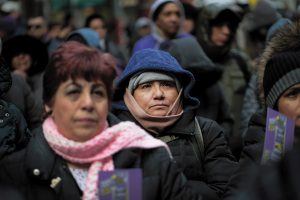
Alissa Quart and Barbara Ehrenreich in The NY Review of Books:
Is the #MeToo “moment” the beginning of a new feminism? Coined by the civil rights activist Tarana Burke in 2006, the term took off in 2017 when celebrities like the actress Alyssa Milano began using it as a Twitter hashtag. Extensive reporting in The New York Times and The New Yorker on harassment in the entertainment and tech industries helped the movement bring down some of those fields’ most powerful figures. By speaking out, a number of famous actresses—some of them better known previously for their not-so-feminist roles as cute witches and beguiling prostitutes—have done so as well. To date, most of #MeToo’s attention has been aimed at the rich and influential: for instance, abusive talk show hosts and other notorious media figures.
#MeToo has too often ignored the most frequent victims of abuse, however, such as waitresses or hotel housekeepers. These are among the invisible people who keep society going—cleaning homes, harvesting our vegetables, and serving salads made of these vegetables. Who among those of us who depend on their labor knows their struggles or even their names? It can seem like an uphill battle to bring attention to the working-class victims of harassment, even though these women are often abused in starker and more brutal fashion than their counterparts in Hollywood.
Bernice Yeung, an investigative journalist for the reporting nonprofit organization Reveal, has helped correct this imbalance. Yeung is no tourist in the lives of the working poor women she covers. She has been writing about the plight of farmworkers and maids harassed and raped by their overseers for more than five years, in places far from executive offices—fields, basements, and break rooms. Her new book, In a Day’s Work, is a bleak but much-needed addition to the literature on sexual harassment in the US.
More here.
